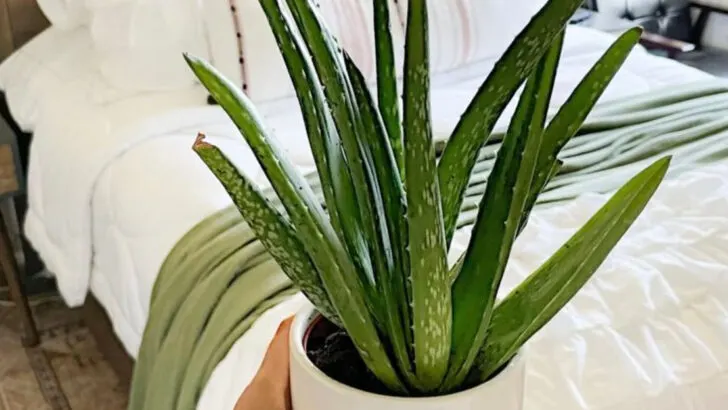Struggling to catch those precious hours of restful sleep? At Plantisima, we believe that sometimes, the solution might be closer than you think—right on your nightstand. Certain houseplants are known not only for their beauty but also for their ability to improve air quality and promote a calm, relaxing atmosphere that helps you drift off easier.
In this article, we’ll introduce you to 15 plants that might actually help you sleep better by purifying the air, releasing soothing scents, or simply creating a peaceful vibe in your bedroom. These natural sleep aids require minimal care and bring a touch of tranquility to your personal space.
Dear Plantisima readers, whether you’re a restless sleeper or just looking to upgrade your bedtime routine, these plants can be your new green allies. Discover how adding a bit of nature to your room can lead to sweeter dreams and more refreshing mornings.
Lavender
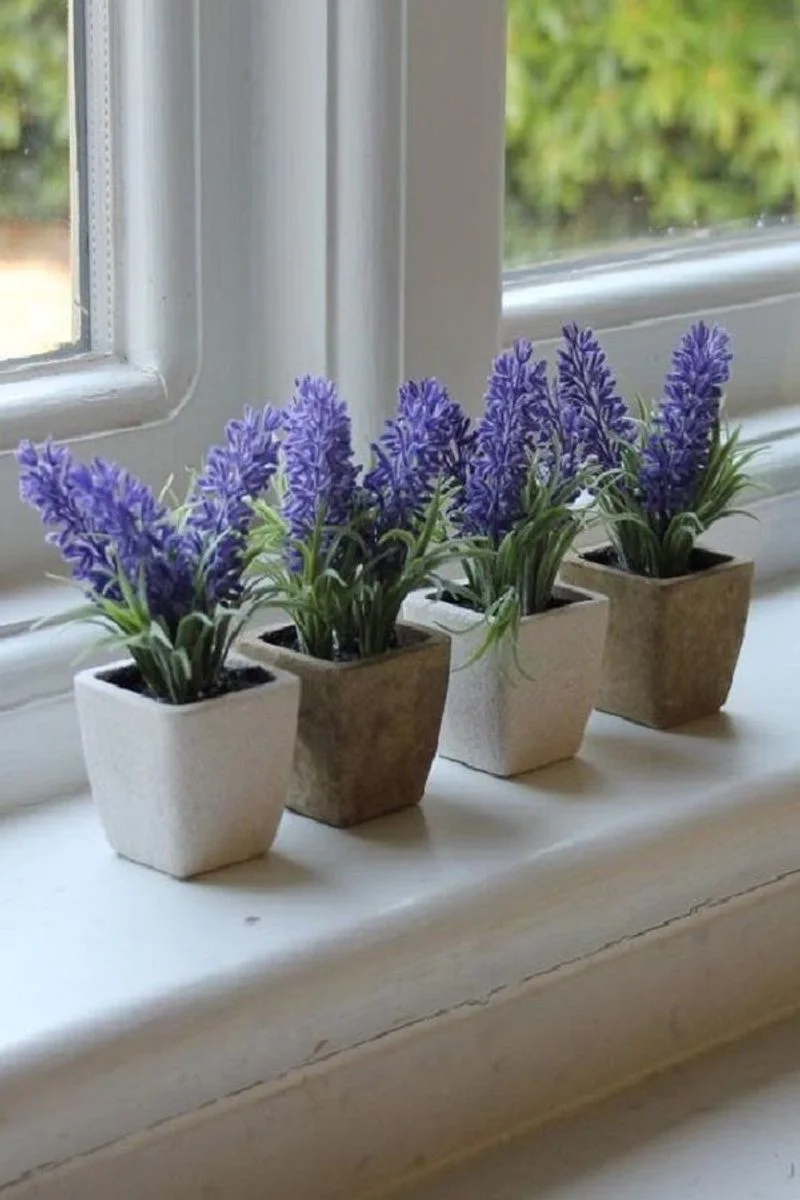
Known for its soothing fragrance, lavender is a classic choice for creating a serene ambiance. Its calming scent has been shown to reduce stress and anxiety, making it a perfect addition to your bedroom. A few sprigs beside your pillow might just be the secret to a restful night. Moreover, lavender oil is often used in aromatherapy for its relaxing properties. Did you know it’s also believed to lower heart rates and blood pressure? It’s no wonder this plant has been cherished for centuries for its sleep-enhancing abilities.
Chamomile
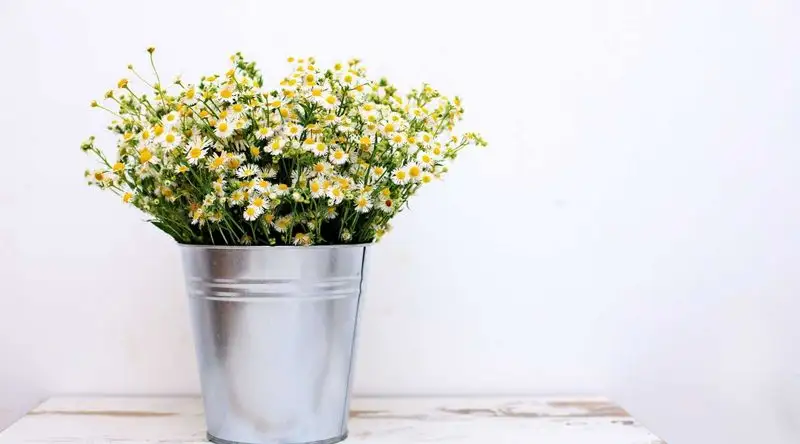
With its delicate daisy-like appearance, chamomile isn’t just for tea. This gentle plant can be a delightful bedside companion, known to help with sleep. Its mild sedative effects have been utilized through history, often turning restless nights into peaceful moments. Chamomile’s subtle fragrance is calming, creating a tranquil atmosphere that encourages sleep. Whether enjoyed as a tea or a decorative plant, it offers a gentle nudge toward relaxation. Historically, it was revered in ancient Egypt for its healing properties.
Valerian
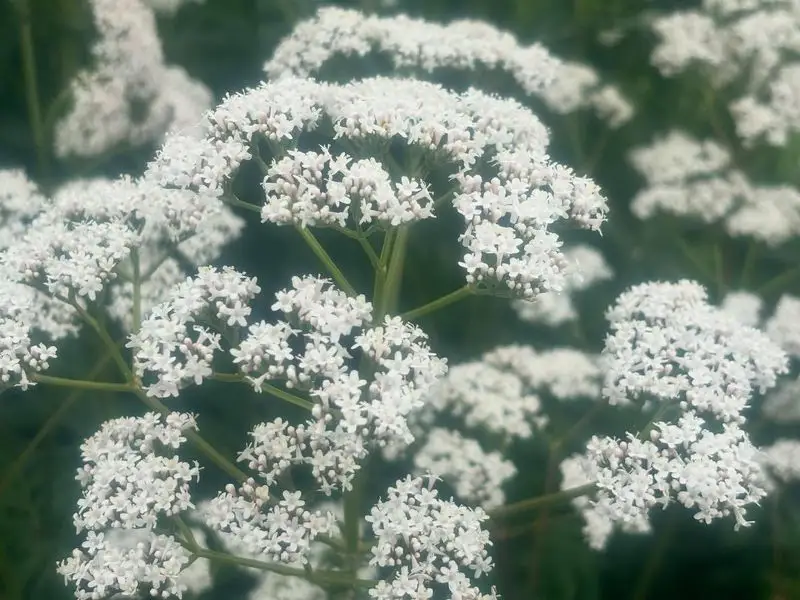
Valerian is often the unsung hero of the plant world when it comes to sleep. Known for its sleep-inducing roots, valerian has been used for centuries as a natural remedy. Its earthy scent might not be for everyone, but many swear by its ability to improve sleep quality. This plant’s roots are often dried and used in teas or supplements. Throughout history, valerian has been a go-to for insomnia relief, long before modern medicine. Its effectiveness in promoting sleep is backed by both tradition and science.
Jasmine
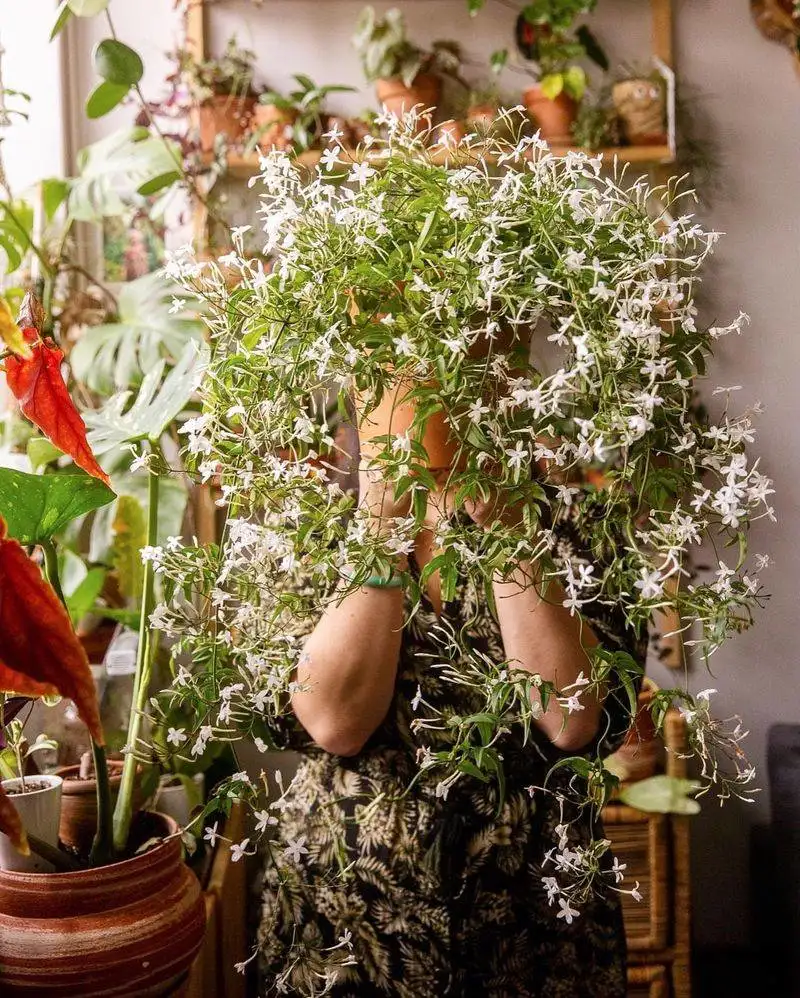
Few plants can rival the exquisite aroma of jasmine. This plant’s luxurious scent is not only enchanting but also known to inspire tranquility. Studies suggest that jasmine’s fragrance can improve sleep quality, making it a wonderful addition to your nocturnal space. Unlike some of its counterparts, jasmine’s scent offers a uniquely romantic and calming atmosphere. Its popularity isn’t only modern; it has been a cherished garden plant in many cultures for its beauty and aromatic properties. Sleep amidst a floral dream with jasmine nearby.
Aloe Vera
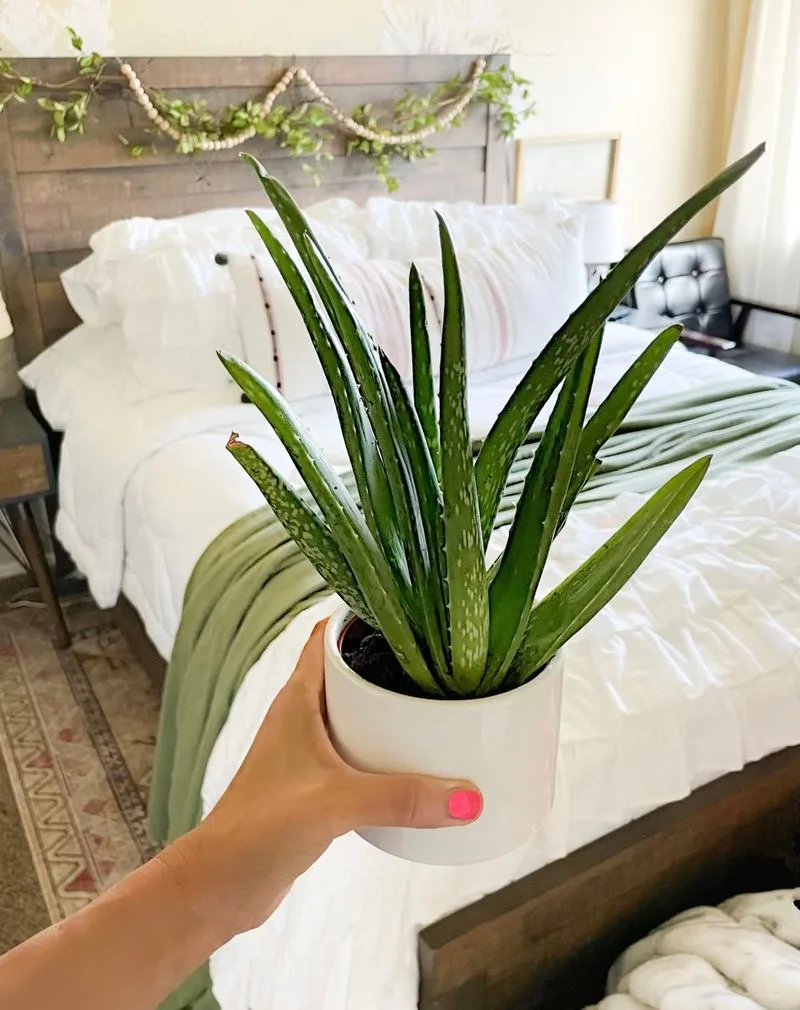
Beyond its reputation for soothing skin, aloe vera is also a beneficial plant to keep around for sleep. Known for improving air quality by emitting oxygen at night, it helps create a fresh bedroom environment. It’s a hardy plant, requiring minimal care, making it perfect for even the most novice plant parents. Aloe vera’s ability to purify the air contributes to a healthier space conducive to rest. Its ancient use in medicine highlights its multifaceted benefits, extending beyond mere beauty or decor.
Gardenia
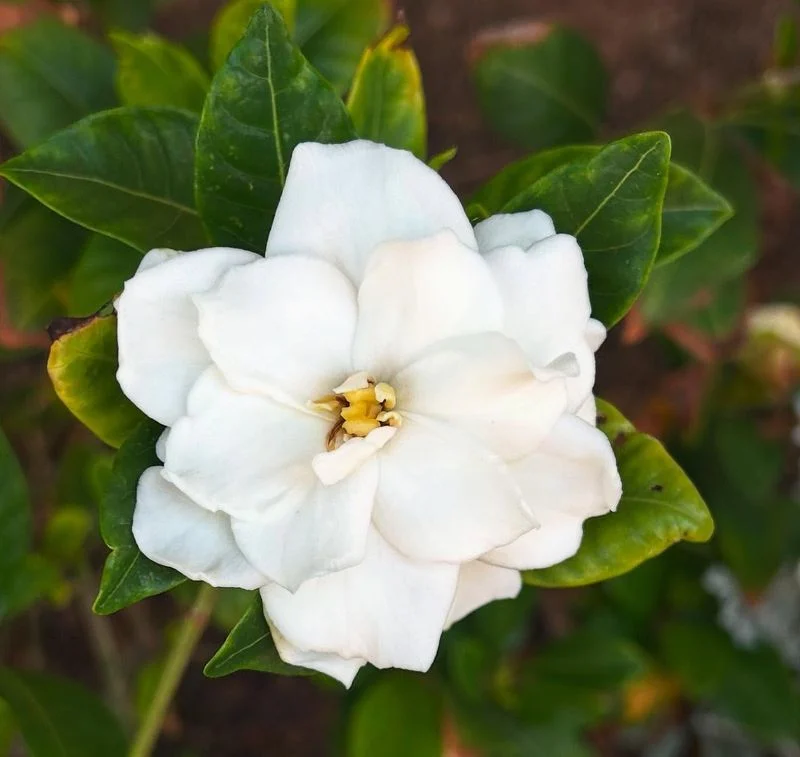
Renowned for its intoxicating scent, gardenia can be a delightful addition to a sleep-promoting environment. Its fragrance is known to have sedative effects, potentially rivaling traditional sleeping aids. The rich aroma fills the air, creating an inviting and relaxing atmosphere. Gardenias have long been a symbol of elegance and grace, often found in lush gardens and historic homes. Their calming scent is not just pleasant but scientifically supported to aid sleep. A beautiful plant with a powerful impact on your nightly routine.
Snake Plant
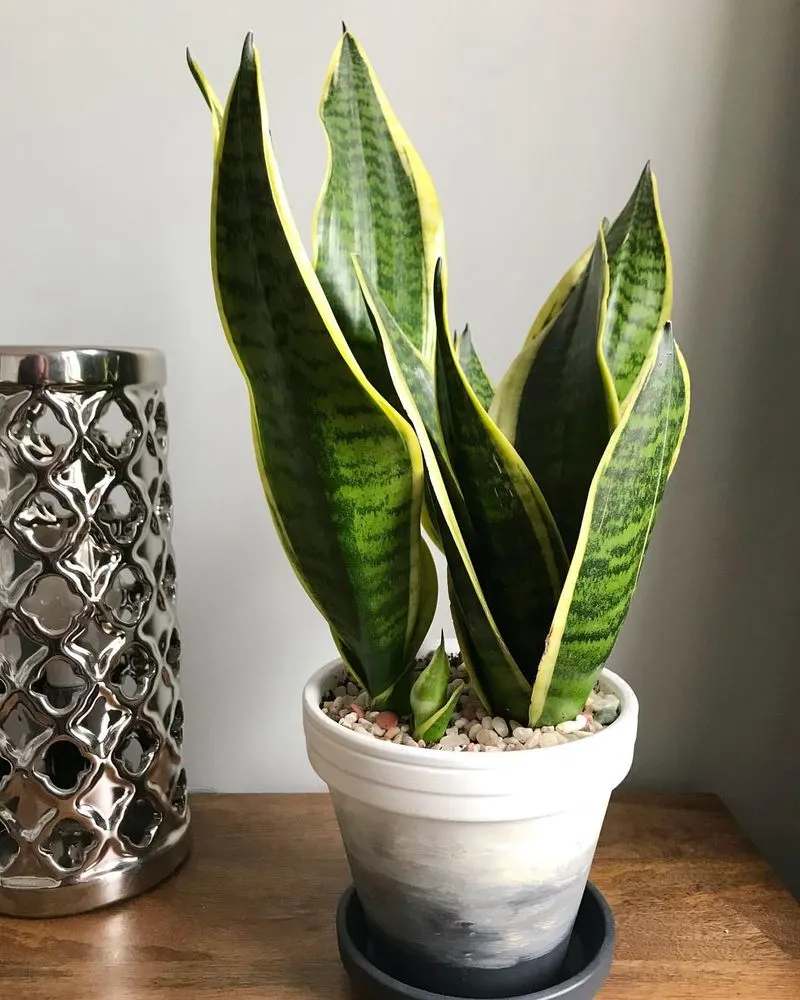
This striking plant is more than just a stylish addition to your decor. Known for its air-purifying abilities, the snake plant releases oxygen at night, enhancing your sleep environment. With its tall, architectural leaves, it’s a low-maintenance option that fits seamlessly into any room. Snake plants are particularly effective at filtering out toxins, which can contribute to a better night’s rest. Their ability to thrive in low light makes them versatile and enduring, perfect for bedrooms that lack natural sunlight.
English Ivy
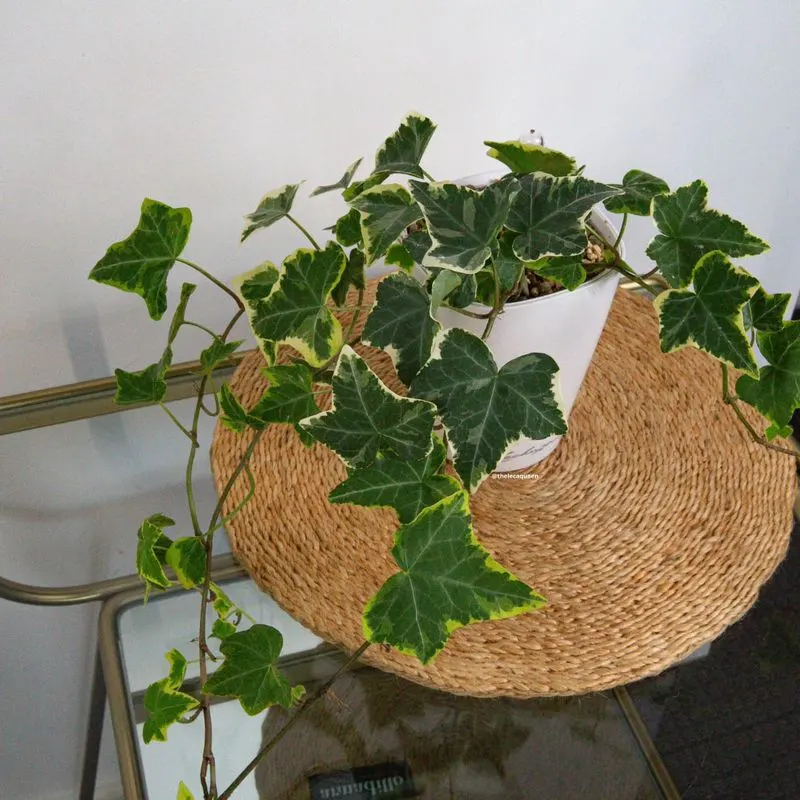
English ivy brings a touch of elegance with its cascading vines, perfect for a bedroom setting. It’s known for its air-purifying properties, especially effective at removing mold from the air. This can be particularly beneficial for those with allergies or respiratory issues, providing a cleaner breathing environment. English ivy’s lush appearance is not only aesthetically pleasing but functional, contributing to a healthier bedroom space. Its historical use in traditional medicine underscores its enduring popularity.
Peace Lily
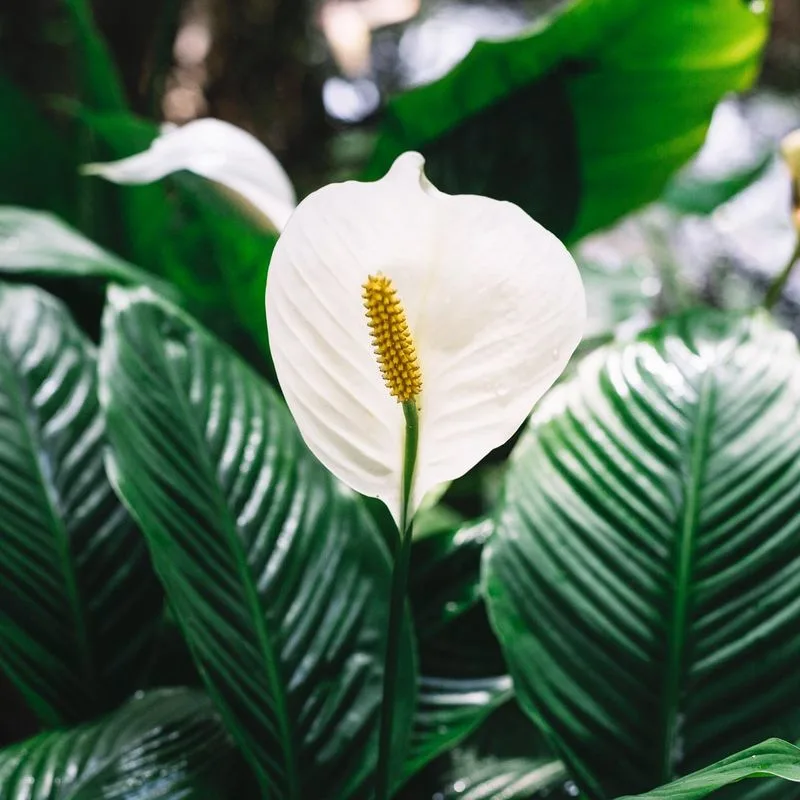
Peace lilies are not only beautiful but also powerful air purifiers, known to absorb toxins such as ammonia and formaldehyde. This can lead to a more restful sleep environment as cleaner air promotes better breathing. Their graceful white blooms add a touch of serenity to any room. Low maintenance and forgiving, peace lilies thrive in low light, making them ideal for the bedroom. Historically, they’ve been associated with peace and purity, aligning perfectly with their role in promoting relaxation and calm.
Bamboo Palm
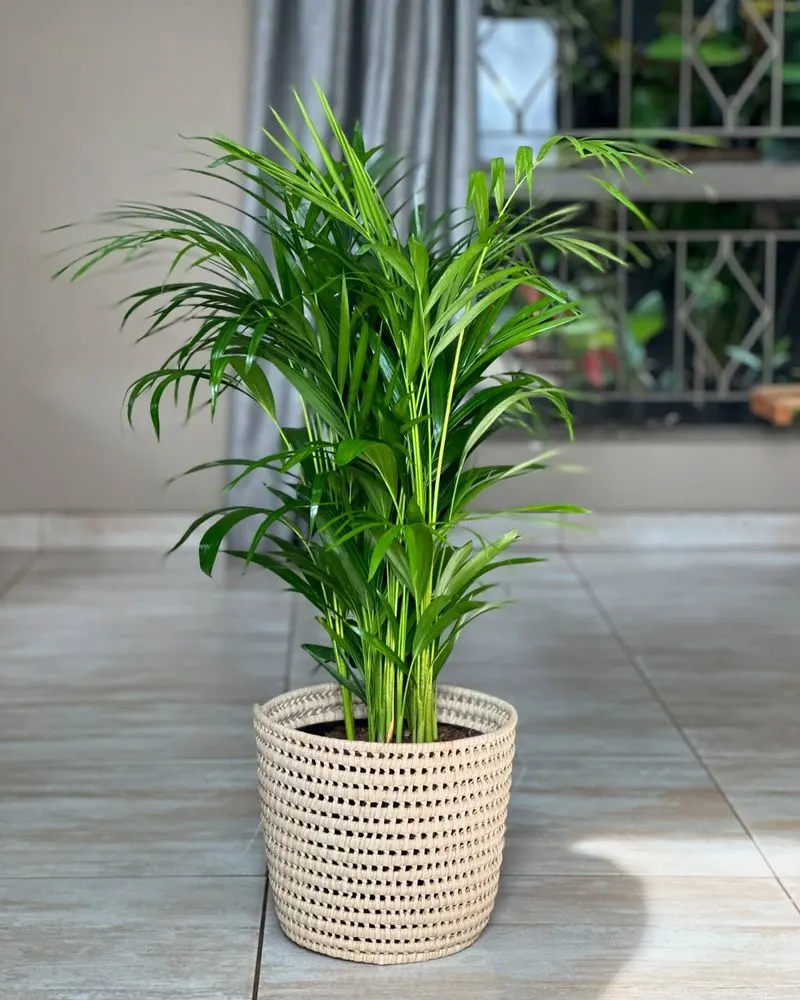
Bamboo palms offer more than just tropical aesthetics. Their ability to filter indoor air pollutants makes them a great addition to your sleep sanctuary. Known for their lush, feather-like fronds, they add a sense of tranquility to any space. This easy-to-care-for plant is perfect for those looking to combine beauty with function. Bamboo palms thrive in indirect light, making them suitable for various indoor settings. Not just visually appealing, they contribute significantly to a healthier sleeping environment by purifying the air.
Spider Plant
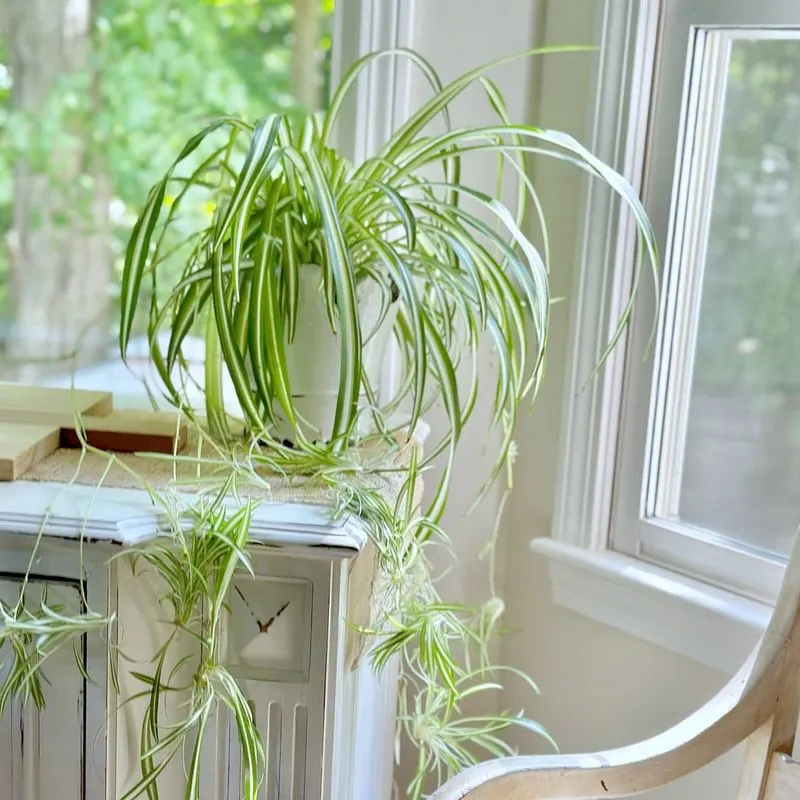
Spider plants are charming with their cascading leaves and air-purifying qualities. They remove pollutants such as carbon monoxide and xylene from indoor spaces. This contributes to a fresher, cleaner sleep environment. Spider plants are resilient and easy to care for, making them popular among houseplant enthusiasts. Their playful appearance can brighten up any room, while their functional benefits support better sleep quality. They have a storied history of being favored for their low maintenance and health-boosting capabilities.

